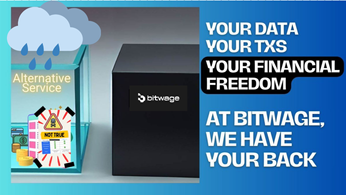
How to File Your Taxes on Bitcoin
Table of Contents
With huge gains in the price of Bitcoin (among other cryptocurrencies) in 2017, holders surprised by a meteoric rise may have taken the chance to take some profits in the ever-uncertain crypto environment. Most uncertain is the regulatory future of cryptocurrencies. But when regulation comes, as we should see with greater adoption, it’s best they find good cryptocitizens--meaning you should pay taxes on your Bitcoin gains. Here are some points for US citizens to keep in mind as they file taxes this year.
The IRS Does Not Recognize Cryptocurrency as a Currency But As Property
While rules have been proposed to eliminate capital gains and losses on purchases made with Bitcoin under $600, no such rule has yet passed. This means every sale of Bitcoin (and purchases made on services such as Purse.io count as sales of Bitcoin) is subject to capital gains as a stock holding would be. It’s important to keep track of your cost basis (the price at which you bought the currency) so that gains can properly be calculated.
If you receive a forked coin, as many did when CoinBase enabled Bitcoin Cash (BCH) on their exchange, it’s best to count it as income in the year it received and use the starting price as your cost basis. (If this seems unfair, just think of the new coin as a dividend of Bitcoin.) If you received 1 BCH at $2,400 and then sold at $3,400 a day later, it should be counted as $2,400 of additional income and a short-term capital gain of $1000.
Like-kind Exchanges Don’t Apply to Cryptocurrency
Some crypto users have been diversifying from Bitcoin into other currencies and many Exchanges use Bitcoin as a unit of exchange for purchasing other currencies. Maybe you get your wage in Bitcoin and use Shapeshift.io to divert part of it into Ethereum. In the past some have counted this as a like-kind exchange as occurs in real estate, but lawmakers, in the tax plan signed by President Trump on December 22, 2017, have passed legislation clarifying that tax rule as only applying to “real property.” Experts believe the implication of this is that the rule cannot apply to cryptocurrencies.
For now the safest course of action would be to calculate this as a sale of BTC followed by the purchase of the other coin for however much the coins were worth at the moment of the transaction. This adds a lot more data to account for, but a service like bitcoin.tax can help if you keep track of the sale prices and costs bases.
Calculating Capital Gains Taxes
One of the best ways to invest for the long term is dollar cost averaging. This strategy entails buying an asset on a consistent basis in small amounts. When the price is up you’re buying less, when it’s down you’re buying more. Entering the market at a variety of price points allows you to mitigate volatility risk. (This is the same idea at work if you invest in stocks in a 401k via payroll deductions. You can invest in Bitcoin this way by using Bitwage’s invoicing service at worker.bitwage.com, allowing you to get any part of your wage in Bitcoin and invest on a consistent basis automatically.)
When you sell then, there is a question of which coins to report as sold. The simplest way to calculate it would be a first in-first out (FIFO) basis. This reporting method reports that you’ve sold the earliest purchased coins. This will likely result in higher capital gains, but that could be offset if they were acquired more than one year ago and subject to the lower long-term capital gains rate rather than the short-term capital gains rate.
Another way to report is specific lots sold. With this method you specify a sale as pertaining to a specific set of coins purchased at a certain price, with an eye towards tax-efficiency. For example, your first coins purchased, in a rising market, might have dramatically lower cost bases and so you may want to delay recognizing gains on these as long as possible. On the other end of the spectrum is FILA, or First In Last Out, another option if FIFO doesn’t work for you. There are many other ways to do this and you should consult a tax professional to explore all the options. Bitcoin.tax allows you to select either option and report in the way you prefer.
Investing in Bitcoin Via Payroll
As mentioned above, one of the best ways to invest in Bitcoin is through your payroll. Bitwage allows you to have part or all of your payroll sent to you as Bitcoin. All you have to do is sign up at worker.bitwage.com to get Bitcoin the next day after your payroll or same day with our premium service. Sign up today!
Resources
Bitcoin.tax
IRS: Virtual Currency Guidance (2014)
The Cryptocurrency Forums: Cryptocurrency Taxes 2017
Forbes: How Cryptocurrency Investors Can Avoid An IRS Attack
Fortune: New Law Closes Bitcoin Loop Hole
Investopedia: Bitcoin Tax Guide: Trading Gains And Losses - LIFO, FIFO, Offsetting Lots
Photo via Philip Taylor









